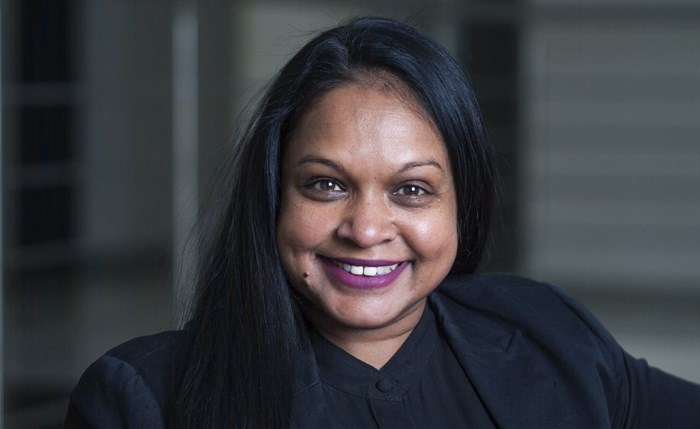Don't limit yourself, lean in - Oracle's Sandhya Ramdhany

Having started her career at Oracle in 2013, Ramdhany is a director and company secretary on the Oracle South Africa board and director on the Oracle Senegal board.
This Women's Month, Ramdhany chats to us about her experience in the legal industry, women's rights and the other challenges facing females in the sector today.
Tell us a little bit about yourself.
I grew up in a small town on the South Coast of KwaZulu-Natal, South Africa in a wholesome and close-knit family. My parents were always mindful of never showing my siblings and I their sacrifices in educating us. This upbringing led me to be selfless and I pay it forward whenever I can. I believe in random acts of kindness, as doing something unexpected for somebody is fulfilling for me. I love putting my culinary skills to use and to entertain. Also, my sense of wanderlust keeps me invigorated.
What are some of the challenges facing women in the world of corporate law today?
Gender inequality: Women are no strangers to gender inequality. The number of female lawyers is likely equal to the number of their male peers at junior levels, however women are likely to remain severely underrepresented at senior levels.
Sometimes, both male peers and clients make assumptions about female lawyers based on their gender. They often assume that a female lawyer may be too soft to manage an aggressive negotiation or a complex litigation. The answer to this problem lies in cooperation between both genders. Both men and women should work together to create an unbiased work culture.
Gender pay gap: Though the gender pay gap exists in most professions, female lawyers can earn significantly less in comparison to their male counterparts, despite female partners landing more business deals. One of the common reasons for this disparity is that men can land more clients compared to their female counterparts by going through an “old boys network”.
What do you believe women bring to the negotiating table that you feel men don’t?
If we use the recent pandemic as an example, countries which are led by women evidently showed that women leaders managed the crisis better than their male counterparts. Resilience, pragmatism, benevolence, trust, mutual aid and humility are mentioned as common qualities of the success of these women leaders.
Over the course of your career, what are some of the biases you’ve noted or experienced as a woman in your field?
I have been fortunate enough not to encounter professional biases. Perhaps it was there but I paid it no attention and did not allow it to impact me. Professions may be male dominated but both genders complement each other. Each have their own unique ideas and viewpoints. I have only ever encountered supportive men - from my dad and brothers to men in my workplace. I’m especially grateful to the leaders in our business, both male and female, who have embraced my role as Oracle South Africa’s country leader with absolute support, encouragement and respect.
Given the recent controversy affecting women's rights in the USA, what kind of influence and impact do you think this may have on women's rights globally?
I’d prefer to answer this question closer to home. There is no doubt that South Africa has made significant progress towards achieving gender equality. South Africa’s progressive laws have seen more women serving in high-ranking positions in government and private sectors than ever before. Young girls and women have access to education which has improved substantially over time. However, we still continue to be plagued by the epidemic of gender-based violence. The cost of engaging in gender-based violence should be raised to men, by increasing criminal sanctions. Parents have a responsibility to teach subsequent generations how to respect and treat women.
Who are some of the female influences and role models you’d like to pay tribute to and why?
My mother. My mother’s basic education did not hamper her entrepreneurial and enterprising spirit. She did whatever she could to supplement the family income, taking the pressure off my father as the only breadwinner.
My mother stressed the importance of being independent, being good and doing good. She taught me more than I could have learnt from any book and continues to be an inspirational example to me.
What is your message to young women this Women’s Month?
Remove the self-imposed hurdle of limiting yourself. If you think you can’t do the job, you probably won’t be able to. When I changed my mindset of trying to do something that scares me everyday, I overcame that barrier. Doing something scary will give you an opportunity to grow both personally and professionally. Leaning in is the most valuable gift you can give to yourself.
About Shan Radcliffe
- 2023 African Legal Award winners - 8 Sep 2023
- #WomensMonth: Your unique perspective has a positive value - Eulenda Lebese-Cussons, LC Attorneys - 22 Aug 2023
- #WomensMonth: Overcome challenges by focusing on your response - Jo-Ann David, Mondelez International - 8 Aug 2023
- #YouthMonth: Be expressive, don't limit yourself - Tsholo Maluleke - 29 Jun 2023
- #YouthMonth: Mandla Ngidi lives to inspire younger generations - 27 Jun 2023
View my profile and articles...

